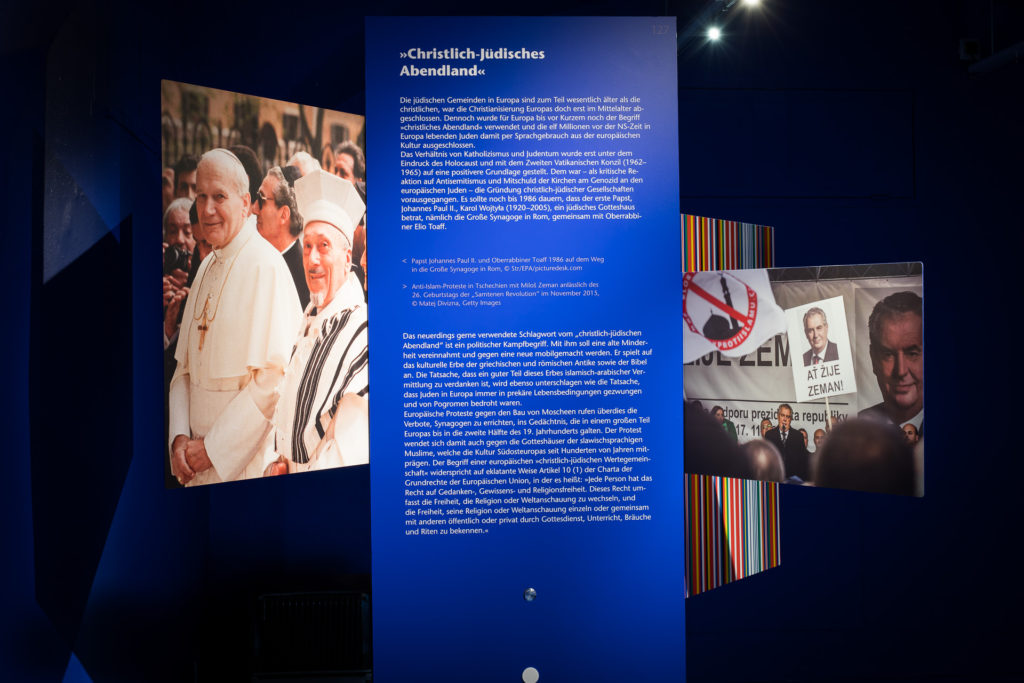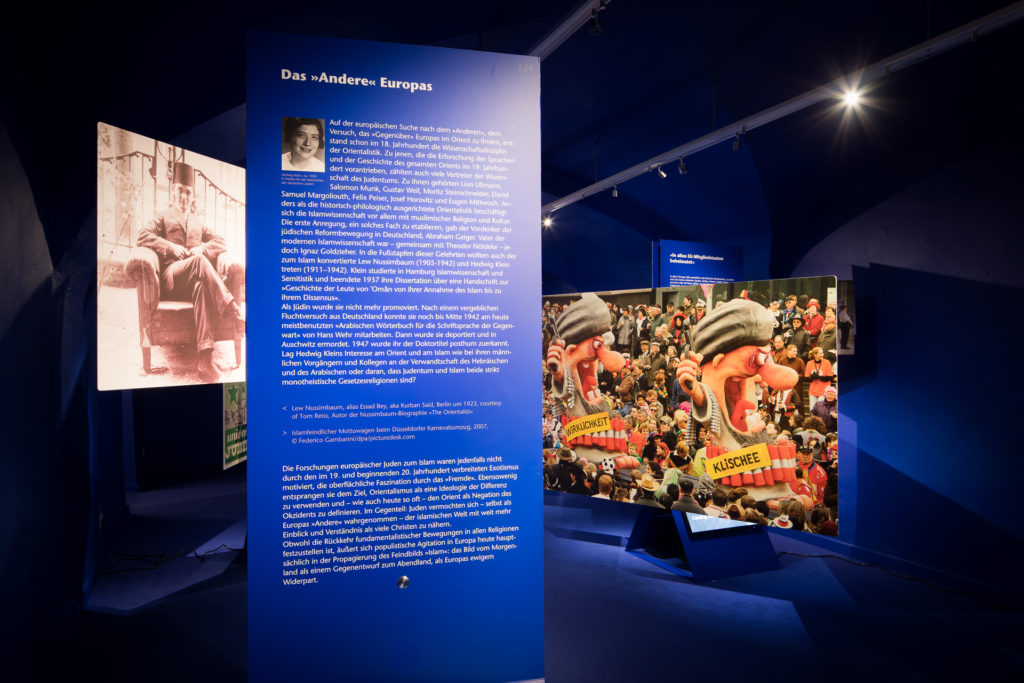European Diary, 13.10.2020: Tomorrow evening Micha Brumlik (Berlin) will speak in our program about the new discourse on “Christian-Jewish Occident”. To get into the right mood André Heller will sing his unrhymed chanson about “Occident”.
André Heller’s Jewish father fled from the National Socialists and lived after 1945 mainly in Paris. Thus Heller also grew up with French citizenship before he became a chansonnier in Vienna.
In 1967 he was one of the founders of the pop channel Ö3 and presented the program Musicbox. His political commitment was always a balancing act. As a “Jew living in Vienna,” he criticized Kreisky for his compromising attitude toward old Nazis and anti-Semites, and Israeli policy toward the Palestinians, even though some critics accused him of “promoting” anti-Semitism. André Heller has not challenged such poisonous absurdities. He has remained as politically awake and critical as ever. When he spoke in the Austrian Parliament on 12 March 2018 on the occasion of 80 years of “Anschluss” in the Austrian Parliament, he ended his speech with a look at the new populism of the icy cold that had entered Austrian politics – and has not been overcome to this day.
“Allow me to tell you another strange thing about my life. For decades I thought I was something better than others. Wiser, more talented, more amusing, entitled to pride. I was arrogant, narcissistic, constantly judging others, and it didn’t do me any good until one day I was looking around me in a London Underground car. There were sitting and standing very different people with different skin colors and I heard different languages: In a kind of lightning bolt into my consciousness, I realized that each and every one of these women and men, old and young, hopeful and desperate, is also myself and that German, English, Russian, Chinese, Spanish, Arabic or Swahili is not our real mother tongue, but the world mother tongue is and should be the compassion. It enables us to recognize ourselves in each other and to be intimately and lovingly connected with them and to take this realization into account in all our thoughts and actions.
Late time, twilight
hour that carries hope, sadness and ashes
Take a breath, be lonely
Autumn of thoughts and last refuge for me
Occident, Occident ‘I respect and despise you
Occident!
Occident
Not my tiredness
But the longing for dreams makes me look for sleep
The disturbing possibility of the transformations of my figure
Into other characters and locations
In the Von der Vogelweide
Cervantes, Appollinaire and James Joyce
Children’s crusades, funeral pyres, guillotines, colonies
The infamy, in fornicators on the Holy See
Expeditions to the edge of consciousness
Bankruptcy of good intentions
Congresses of the cynical laughing masters
Marc Aurel’s “Astronomy of contemplation”.
The storm baptisms Vasco da Gamas
Leonardo’s mirror writing
Gaudi’s anarchy of buildings
In Pablo Ruiz Picasso
Who grabbed the wishes by the tail
The Uprising in the Warsaw Ghetto
The Great Progroms of Armenia and Spain
Percival, Hamlet, Woyzeck, Raskolnikov
The flowers of evil
De Sade, Hanswurst and the man without qualities (“Mann ohne Eigenschaften”)


